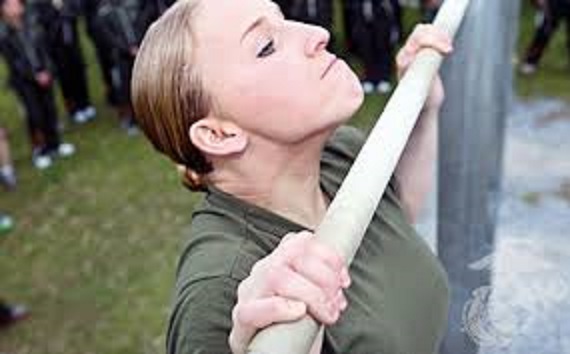In recent weeks there has been a rash of news on the subject of women in combat, with a range of actions from several units of the U.S. military and a range of opinions from women. Not surprisingly, the units of the military were those whose fighters engaged in the most dangerous missions or had to pass the most challenging physical tests. The Navy SEALs agreed to admit women if they could pass the tough tests, though noting that very few women so far had passed those tests. Though two women had recently completed the daunting Army Ranger School, a former female captain and airborne soldier–someone who had actually served–identified a long list of obstacles to having women serve in the infantry. Although there was an overall requirement for all military units to accept women by January 1, 2016, there were provisions for exceptions on a unit-by-unit basis. Not surprisingly, given their history and ethos, the Marines have been the most outspoken objectors to this, though there have been complaints about the research they did to support their views. (It is amusing that the title of this article was a play on “A Few Good Men”, a movie whose cast included actress Demi Moore, who also starred in “G.I. Jane”, a movie specifically showing a woman going through the same grueling and demeaning tests that the elite males had to complete.)
Although there has been a recent spate of developments, and news about them, regarding women’s serving in particularly dangerous or difficult military combat roles, the issue has been around for a considerable time. In March 1999 a book authored by Rosemarie Skaine, “Women at War: Gender Issue of Americans in Combat”, dealt with many of them 15 years ago.


